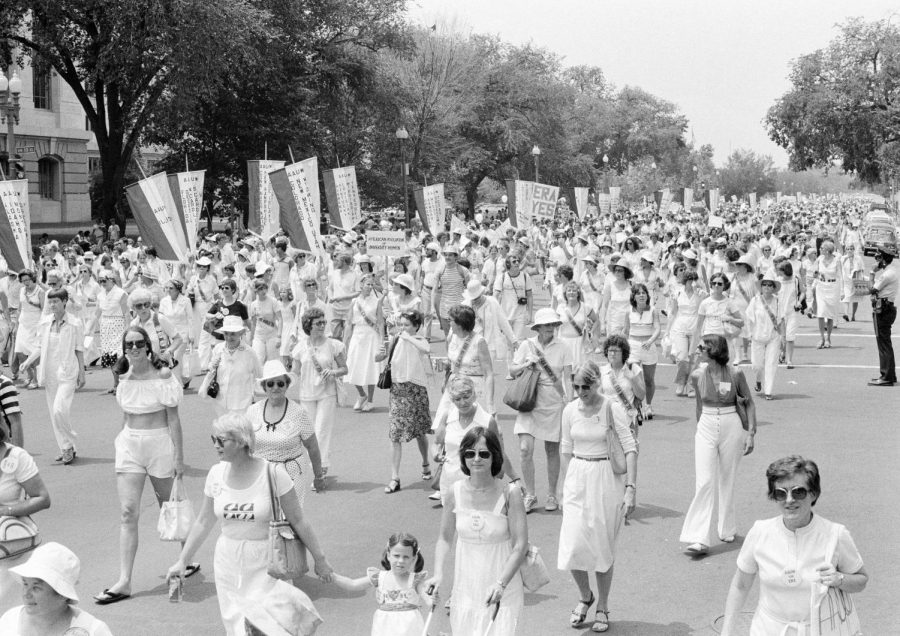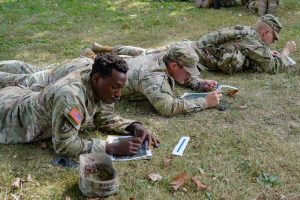Women’s rights have made great strides over the past 100 years
AP Photo/Marucci
Women dressed in white and carrying suffragist banners of the last century, march to the Capitol in Washington D.C., July 9, 1978. The group urged Congress to extend the time for ratification of the Equal Rights Amendment.
November 29, 2022
The Women’s rights movement has made tremendous strides over the past 100 years. After the overturn of Roe v. Wade, it’s important to remember the positive changes we have made for our current society.
Not too long ago, women couldn’t vote, own property or simply have a credit card in their name. Women were not allowed many of the same basic rights that white men had, rights that you might not think about in your day-to-day life because you are so accustomed to having them.
In 1920, the rights to vote for white women became protected under the 19th amendment; and just a century later, more women were voting than men.
During the 2020 presidential election, 63% of women who were eligible to vote claimed they had voted while only 59% of men claimed they voted, according to Pew Research, a nonpartisan think tank organization based in Washington, D.C.
Additionally, in the recent midterm election, more women were on ballots than ever before with 309 women running for political positions, reported CNN.
Despite the disadvantages women still face today, there is still so much to be proud of as women.
Some of the most notable people throughout history have been women: Jane Austen, Anne Frank, Rosa Parks, Queen Elizabeth I, Maya Angelou, Sojourner Truth, Amelia Earhart, Princess Diana, Ruth Bader Ginsburg, Oprah Winfrey, Mother Teresa, Kamala Harris and many more.
Within the NIU community, the Gender and Sexuality Resource Center aims to educate students on women’s and reproductive rights whether they identify as a man, woman or as nonbinary.
“For people, maybe don’t have a a uterus or engage in sexual activity, they can still see, like, ‘Oh I can see how this affects my friends, my family because I have more language, knowledge, education on it,’” said Molly Holmes, GSRC director.
Furthermore, the GSRC aims to focus on helping students get the most out of their future even if they are part of a marginalized community.
“We want to share information, but then also say, ‘OK what can we do about that? How can we impact change, not just running for office,’” Holmes said. “But what are ways that we can think about, like maybe when we’re searching for a job, you know, how do we ask for transparent salary information? How do we look that up?”
The GSRC has many projects and events with the goal of helping students. It is important for students, who might be feeling discouraged with the setback from the overturn of Roe v. Wade, to remember that a lot of progress has been made and there is still a lot of good to be done.
“I would encourage students to maybe think about checking out the Woman and Gender Advocacy Alliance, meeting other students who are passionate at NIU about furthering equitable gender rights,” Holmes said. “It can be a great place to connect with friends and have that positive outlook.”







